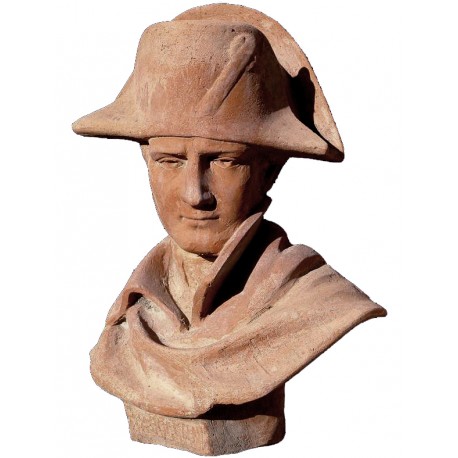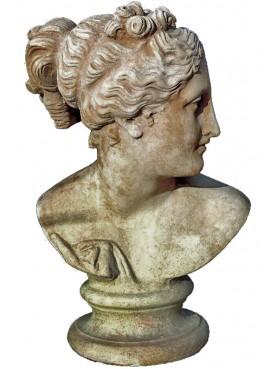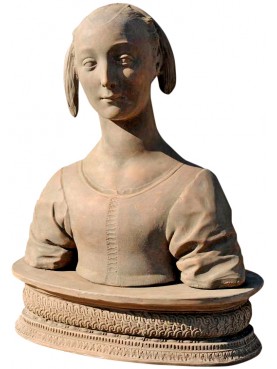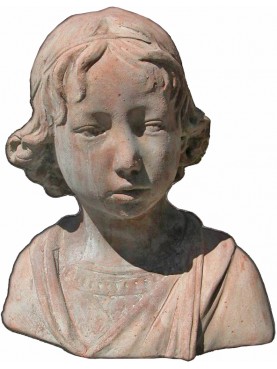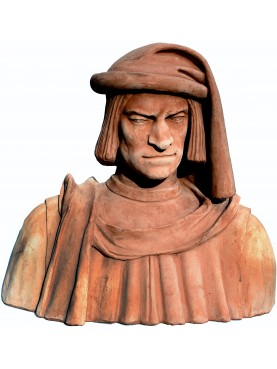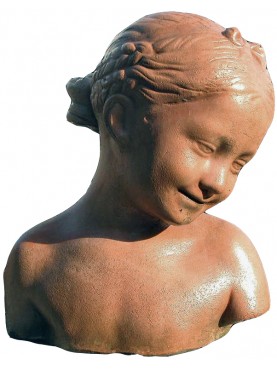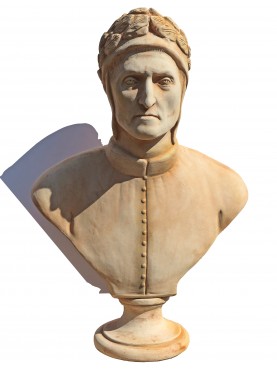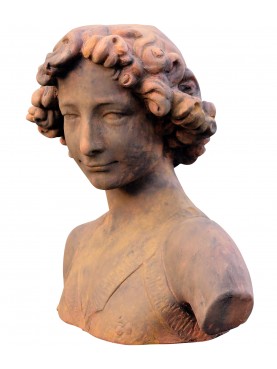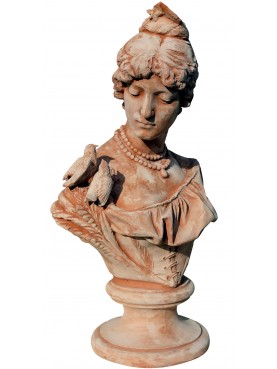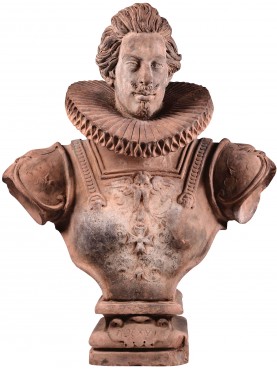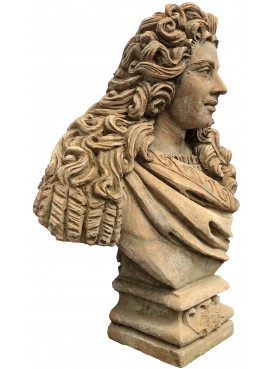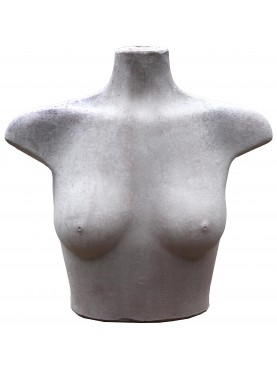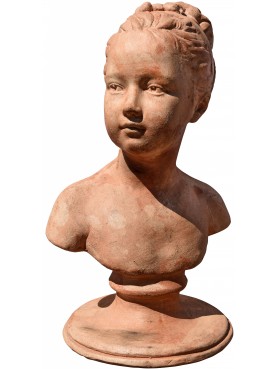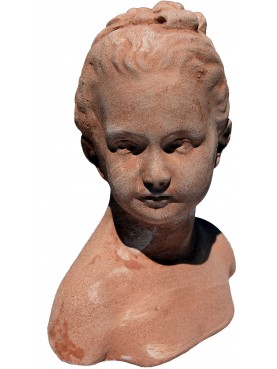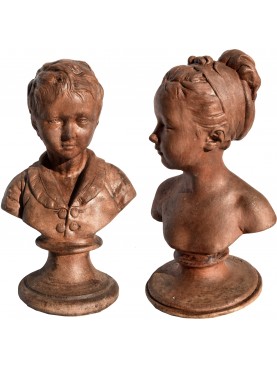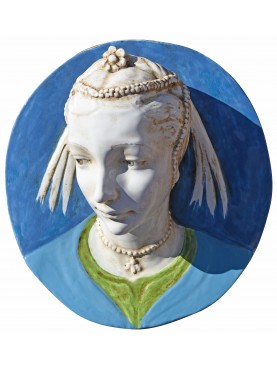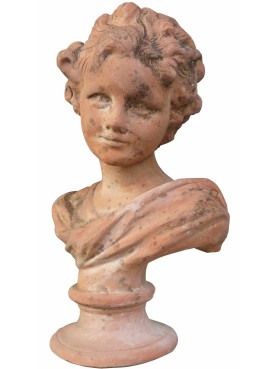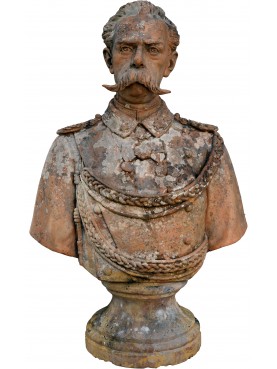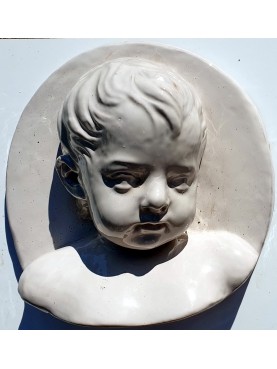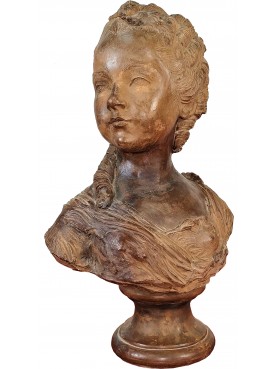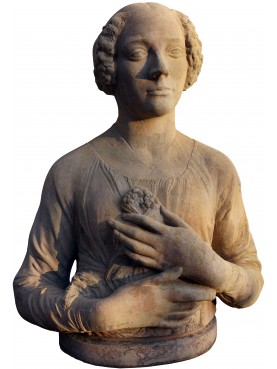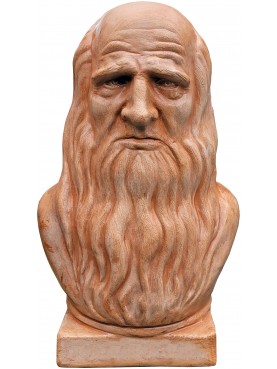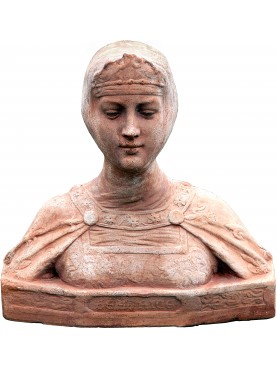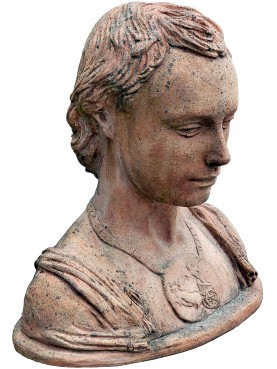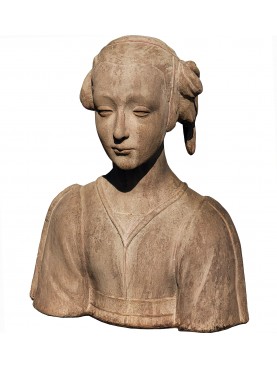NAPOLEONE BONAPARTE terracotta bust
NAPOLEONE BONAPARTE terracotta bust
4997
New
Terracotta bust, our exclusive production.
Terracotta bust of Napoleon, a copy of the famous bust of Francoise Rude (1784-1855).The copy was made from a plaster bust, originally purchased from us in Lucca.
The original: Elba island in the Palazzina dei Mulini in Portoferraio, the Emperor's residence during the Elba period.
3 Available
Data sheet
| Height | 19.69 in | 50 cm |
| Width | 17.32 in | 44 cm |
| Depth | 13.78 in | 35 cm |
| Weight | 33.07 lbs | 15 Kg |
| Manufacturing | Recuperando srl | |
| Material | Terracotta | |
| Note 01 | Francoie Rude (1784-1855) |
More info
Napoleon Bonaparte (15 August 1769 – 5 May 1821) was a French military and political leader who rose to prominence during the French Revolution and led several successful campaigns during the French Revolutionary Wars. As Napoleon I, he was Emperor of the French from 1804 until 1814, and again in 1815. Napoleon dominated European and global affairs for more than a decade while leading France against a series of coalitions in the Napoleonic Wars. He won most of these wars and the vast majority of his battles, building a large empire that ruled over continental Europe before its final collapse in 1815. One of the greatest commanders in history, his wars and campaigns are studied at military schools worldwide. Napoleon's political and cultural legacy has ensured his status as one of the most celebrated and controversial leaders in human history.
He was born in Corsica to a relatively modest family from the minor nobility. When the Revolution broke out in 1789, Napoleon was serving as an artillery officer in the French army. He attempted to capitalize quickly on the new political situation by returning to Corsica in hopes of starting a political career. After that venture failed, he returned to the military and rose rapidly through the ranks, ending up as commander of the Army of Italy after saving the governing Directory by suppressing a revolt from royalist insurgents. At age 26, he began his first military campaign against the Austrians and their Italian allies, conquering the Italian Peninsula in a year, and becoming a national hero. In 1798, he led a military expedition to Egypt that served as a springboard to political power. He engineered a coup in November 1799 and became First Consul of the Republic. His ambition inspired him to go further, and in 1804 he became the first Emperor of the French. Intractable differences with the British meant that the French were facing a Third Coalition by 1805. Napoleon shattered this coalition with decisive victories in the Ulm Campaign and a historic triumph over Russia and Austria at the Battle of Austerlitz, which led to the elimination of the thousand year-old Holy Roman Empire. In 1806, the Fourth Coalition took up arms against him because Prussia became worried about growing French influence on the continent. Napoleon quickly defeated Prussia at the battles of Jena and Auerstedt, then marched the Grand Army deep into Eastern Europe and annihilated the Russians in June 1807 at the Battle of Friedland. France then forced the defeated nations of the Fourth Coalition to sign the Treaties of Tilsit in July 1807, bringing an uneasy peace to the continent. Tilsit signified the high watermark of the French Empire. In 1809, the Austrians and the British challenged the French again during the War of the Fifth Coalition, but Napoleon solidified his grip over Europe after triumphing at the Battle of Wagram in July.
Hoping to extend the Continental System and choke off British trade with the European mainland, Napoleon invaded Iberia and declared his brother Joseph the King of Spain in 1808. The Spanish and the Portuguese revolted with British support. The Peninsular War lasted six years, featured extensive guerrilla warfare, and ended in victory for the Allies. The Continental System caused recurring diplomatic conflicts between France and its client states, especially Russia. Unwilling to bear the economic consequences of reduced trade, the Russians routinely violated the Continental System and enticed Napoleon into another war. The French launched a major invasion of Russia in the summer of 1812. The resulting campaign witnessed the collapse of the Grand Army, the destruction of Russian cities, and inspired a renewed push against Napoleon by his enemies. In 1813, Prussia and Austria joined Russian forces in a Sixth Coalition against France. A lengthy military campaign culminated in a large Allied army defeating Napoleon at the Battle of Leipzig in October 1813. The Allies then invaded France and captured Paris in the spring of 1814, forcing Napoleon to abdicate in April. He was exiled to the island of Elba near Rome and the Bourbons were restored to power. However, Napoleon escaped from Elba in February 1815 and took control of France once again. The Allies responded by forming a Seventh Coalition, which defeated Napoleon at the Battle of Waterloo in June. The British exiled him to the remote island of Saint Helena in the South Atlantic, where he spent the remainder of his years. His death in 1821 at the age of 51 was received with surprise, shock, and grief throughout Europe, leaving behind a memory that still persists.
Wikipedia source

